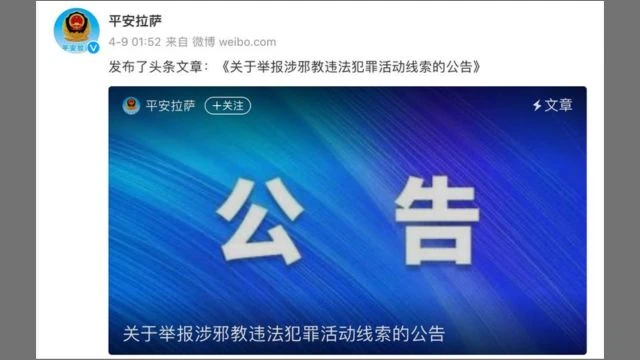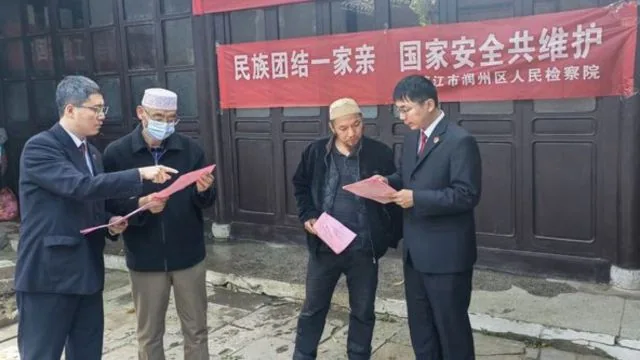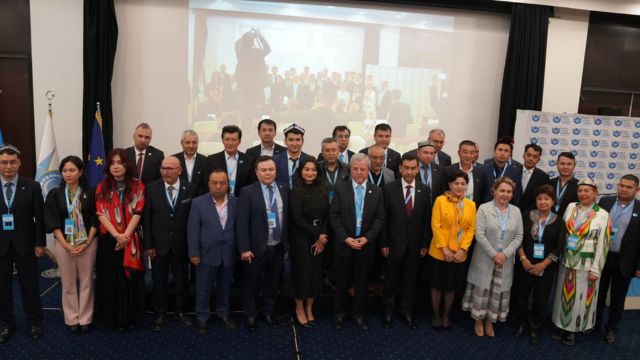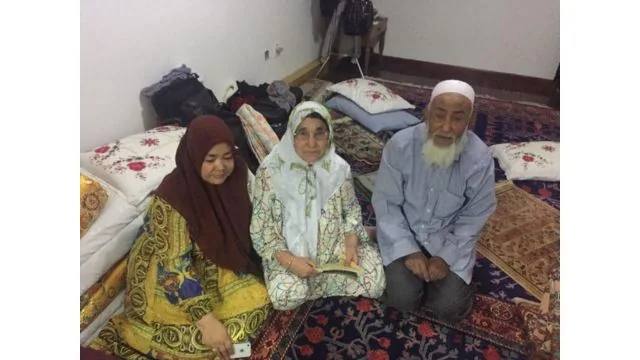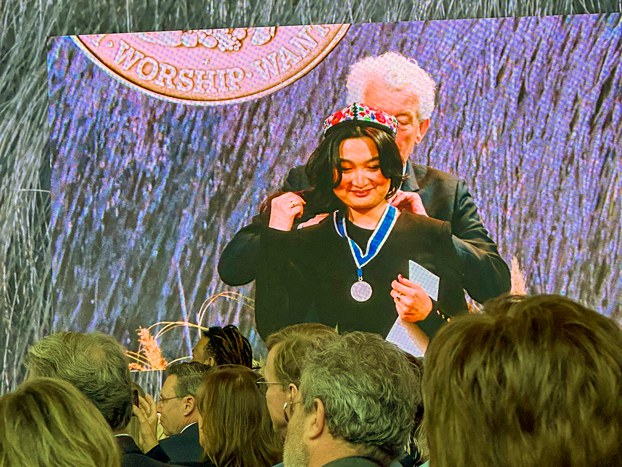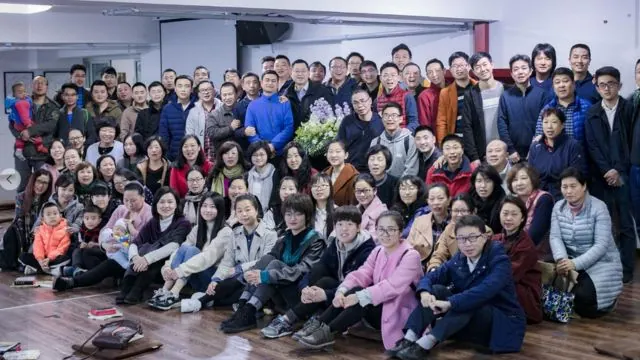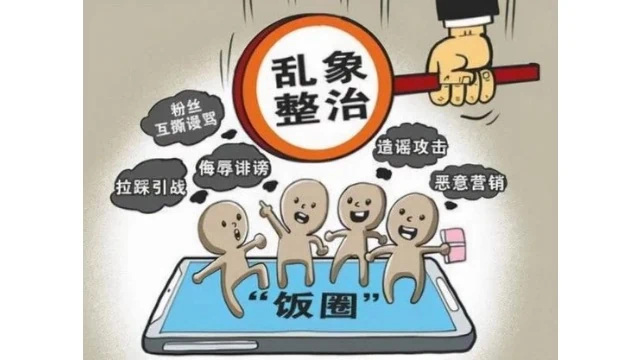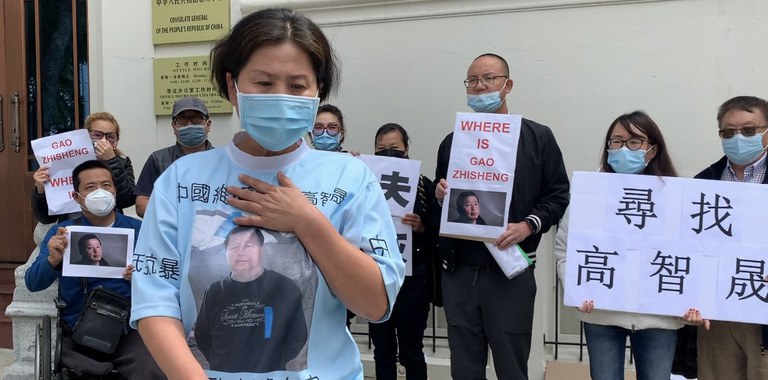Based on a 2020 confidential text, courts were asked to interpret law provisions extensively to impose heavier jail penalties on the devotees.
by Jiang Tao
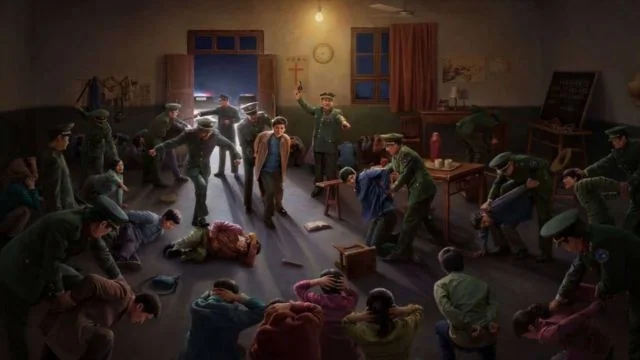
Recently, “Bitter Winter” received a secret and previously unknown document issued in July 2020 by China’s Supreme People’s Court, Supreme People’s Procuratorate, and the Ministry of Public Security. The document, titled “Guiding Opinions on Legally Punishing the Criminal Activities of the ‘Almighty God’ Xie Jiao” (hereinafter referred to as the “Guiding Opinions”), states that it was created to “efficiently” and “severely” crack down on The Church of Almighty God (CAG). It instructs courts, procuratorates, and public security organs to “coordinate between each other, fully utilize existing legal provisions, and conduct precise, efficient, and lawful strikes.” The document explicitly states that the Guiding Opinions must be kept confidential and “cannot be cited in legal documents.”
Ten months prior to the issuance of this document, the Central Political and Legal Affairs Commission issued a confidential directive, requiring all institutions, including public security organs, procuratorates, and courts, to enhance cooperation and launch a “comprehensive war” to “completely destroy” the CAG nationwide. Consequently, the number of sentenced CAG devotees has increased by an average of 26% annually for four consecutive years. The proportion of those sentenced to three years or more rose from 37% in 2019 to 47% in 2023, peaking at 53% in 2022, with the maximum sentence reaching 15 years.

Number of CAG members sentenced and proportion of those imprisoned for 3 or more years (2020–2023).
The U.S. Department of State in its China 2019 Human Rights Report commented on the non-independence of Chinese courts of law, by noting: “Although the law states the courts shall exercise judicial power independently, without interference from administrative organs, social organizations, and individuals, the judiciary did not exercise judicial power independently. Judges regularly received political guidance on pending cases, including instructions on how to rule, from both the government and the CCP, particularly in politically sensitive cases. The CCP Central Political and Legal Affairs Commission has the authority to review and direct court operations at all levels of the judiciary. All judicial and procuratorate appointments require approval by the CCP Organization Department.”
In China, politics interfering in the judiciary often results in numerous cases of heavy and wrongful sentencing. During the “Strike Hard” campaign launched in September 1983, at least 24,000 people were sentenced to death, with some being executed for minor theft or selling train tickets illegally. In the anti-gang campaign initiated in 2018, some local procuratorates even assigned quotas and competed in terms of numbers. In recent years, under the policies of “completely destroying The Church of Almighty God,” CAG members face unprecedentedly severe punishments once captured.
The Guiding Opinions mandate a “focused crackdown and heavy punishment” on “key CAG members” and all “active participants who refuse to reform.” According to incomplete statistics, at least 33 CAG devotees have been sentenced to 10 years or more from the issuance date of this document until the end of 2023. Some of these devotees were grassroots church leaders or evangelists, and some were heavily sentenced just for hosting gatherings, being labeled as “key members.”
On November 25, 2021, five church text editors in Mianyang City, Sichuan Province, were arrested. They were identified as “key CAG memberd” and sentenced to prison terms ranging from 7 to 12.5 years.
In August and September 2022, the court in Yingde City, Guangdong Province, sentenced two CAG members to 12 years each, despite them being merely church evangelists.
On December 26, 2022, the court in Fushun County, Zigong City, Sichuan Province, sentenced a grassroots CAG leader to 10 years in prison for “organizing and using a xie jiao to undermine law enforcement.”
In December 2023, two grassroots CAG leaders in Sichuan Province were sentenced to 10 years each. That same year, a 77-year-old CAG member in Henan Province was sentenced to 7.5 years simply for hosting gatherings.
“The government believes that arresting ‘key church members’ and imposing heavy sentences is a crucial means to completely eliminate the CAG,” an insider told “Bitter Winter.” “In prison, they will endure harsher torture than other inmates. With sentences of ten years or more, many do not survive until their release.”
The Guiding Opinions also broadens the scope of what constitutes “serious circumstances.” The document states: “If the amount of xie jiao propaganda materials distributed via mobile storage media reaches ten times the standard specified in Article 2, Item 12 of the Interpretation on Several Issues Concerning the Application of Law in Handling Criminal Cases Involving the Organization and Utilization of Xie Jiao to Undermine Law Enforcement (hereinafter referred to as the ‘Interpretation’), criminal responsibility must be pursued, and the case can be deemed ‘serious’ and the participants will be subjected to heavy punishment.”
Article 2, Item 12 of the Interpretation outlines the sentencing standards for “using communication information networks to promote xie jiao,” including “producing or disseminating more than 200 electronic images or articles, more than 50 electronic books, publications, audio or video files, or more than 5 million characters in electronic documents, or more than 250 minutes of electronic audio or video content,” all of which can result in severe sentences.
Reportedly, due to prolonged repression and persecution, the CAG does not conduct evangelistic activities via the internet in mainland China. However, the Guiding Opinions significantly expands the scope of the provisions on “electronic distribution.” Several court verdicts confirm that the definition of “xie jiao propaganda materials distributed via mobile storage media” is very broad. Discovering electronic devices at meeting venues, even with just two or three people gathering there, constitutes “distribution.” Copying materials that include religious information also counts as “distribution.”
The CAG’s main scripture, “The Word Appears in the Flesh,” alone consists of six volumes. Additionally, there are over seventy films and thousands of faith-related videos. Many verdicts show that courts at all levels across the country impose heavy sentences on CAG devotees based solely on the quantity of electronic books found on mobile storage devices. By applying the Guiding Opinions, an increasing number of CAG ordinary believers are being sentenced to more than seven years in jail.
Source: BITTER WINTER



